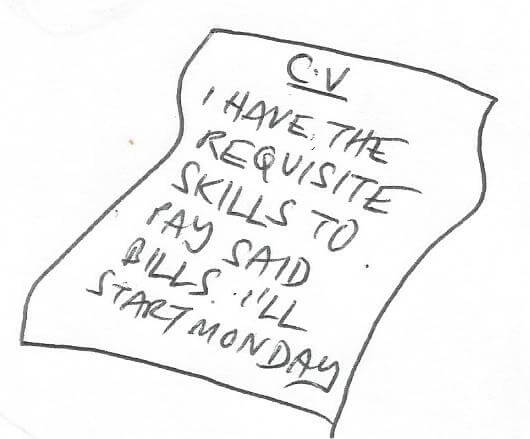Academic Qualifications aren’t Students’ Only Route to Successful Careers

There are many paths that lead young people to a successful and filling life, says Edd Williams – and great careers advice should take that into account…

- by Edd Williams

You cannot will passion into ability – and whilst breaking it to a student that their strangulated caterwauling won’t rocket them to the top of the charts isn’t an enviable task, good careers advice relies upon brute honesty and even more empathy.
Identifying what a young person’s skills are, and how they can be used, is a question that needs constant scrutiny – not as an afterthought, but from the earliest possible moment and throughout their time with you.
For too long the notion of careers has been wed to academic subjects, narrowly enforcing a limiting range of jobs. Conversely, the rise of no-skill celebrity insta-fame tugs students in the other direction; we need to shepherd them to something in the middle.
By aggressively bonding the academic and vocational it’s hard for students, much less teachers – many of whom are the product of this false marriage of ideas – to see beyond purely academic routes to embrace the aptitudes, the soft skills, the interests.

What do you want?
Increasingly, people are stepping away mid-career to pursue their passion; any episode of Masterchef will reveal how many successful barristers would kill to be a barista.
This is the inevitable result of shuttling people down the ‘safe’ routes into degrees and careers to appease a system that’s geared to a world it understands, but one that’s unrecognisable to today’s job market.
When it comes to helping students identify potential routes I begin with one simple question: ‘What do you want for your life?’ Not where do you see yourself in ten years time, but rather what kind of life would you like?
It maybe their answer’s entirely material, eg having a big house in London with an expensive car. This necessarily rules out some options, but also leaves a broad field in which to examine how their skills, interests and aptitudes might ally with a relevant job.
It’s then that you work back towards what you must do academically to achieve that goal. Not the other way around.
Many jobs don’t require a traditional academic underpinning, but all require certain steps to ensure the best version available of that profession is achievable.
This isn’t about the rudderless pursuit of ‘dreams’ but rather a realistic, pragmatic identification of young people’s abilities, encouraging them to explore whether that aptitude can be parlayed into sellable skills to help them achieve the life they want.
The issue is, how can we identify and develop those skills when we’re obsessed with promoting the academic route?
Think widely
When you ask your students what they want to do, encourage them to think as widely as possible, based on their interests and abilities.
Life’s short, and creating an environment that sacrifices talent in favour of certificates before they’ve set foot in the world is robbing them and possibly us of their potential contribution.
It’s like the quote so often attributed to Einstein: ‘If you judge a fish by its ability to climb a tree, it will live its whole life believing it is stupid’.
Similarly, if from the earliest age students are encouraged to believe that only through education and good grades can one make a stab at a good life or job, then from the first SATs onwards, if they fare badly, they’ll struggle to see the point of even trying.
A lesson that’ll be compounded with each subsequent disappointment.
If, on the other hand, we embrace individuality and think holistically about what they offer beyond prestige in the league tables, we can develop a cohort of engaged, aspirational, enthusiastic young people who will know where they’re going without fear of ridicule – be it location scouting for film, writing music reviews or being a Premier League referee.
By supporting and encouraging them to build their networks, getting meaningful work experience and internships throughout, they’ll thrive, they’ll have focus, and they’ll be approaching their futures with a greater sense of self and confidence.
No more will their worth be linked exclusively to their grades or their destination but rather, their accomplishments and sense of purpose. Besides, who needs more lawyers, anyway?
 Edd Williams is an academic and careers consultant at DuartConsultants.com, and author of Is your School Lying to You? Get the Career you Want. Get the Life you Deserve (Ortus Press). For more information visit edducan.com or follow @TheEddWilliams.
Edd Williams is an academic and careers consultant at DuartConsultants.com, and author of Is your School Lying to You? Get the Career you Want. Get the Life you Deserve (Ortus Press). For more information visit edducan.com or follow @TheEddWilliams.










